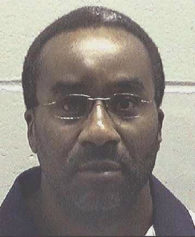Black men are still treated like slaves—over-policed, over-monitored, criminalized and punished for offenses they did not commit, or crimes that are not offenses when committed by white men. The “old days”–when Black people could not assemble in public, or were arrested for presumably Black-oriented crimes such as loitering and “chicken stealing” and consequently funneled into chain gangs and prison plantations—are now.
As Alexandra Natapoff, a professor of law and associate dean at Loyola Law School, Los Angeles wrote in the Washington Post, Black men are convicted of minor crimes they did not commit. Under “quality-of- life” or “order maintenance” policing, Black men are sent to jail and convicted on baseless charges such as loitering. When the police officer tells a young Black man to move along and he does not, he is then arrested for loitering. Baltimore is under court-ordered monitoring for this illegal practice and these baseless arrests.
Natapoff indicates that in New York, the police had a 20-year policy of arresting people in public housing for trespassing, even though these people had every legal right to be there, a measure which was ruled unconstitutional. Similarly, in Ferguson and throughout St. Louis County, Missouri, the U.S. Department of Justice found that law enforcement illegally stopped residents without reasonable suspicion, then arrested them for the vague offense of “failure to comply.” While people may conclude that minor convictions are no big deal, they are mistaken, as the ramifications are serious.
“A misdemeanor conviction can deprive a person of a driver’s license, public housing, student loans, or legal immigration status. Even an arrest record can interfere with job prospects, and most employers say they check criminal records before hiring,” Nataposs notes, adding that while the typical punishment is probation or a fine, many people end up in jail for fines they cannot afford to pay—the new debtor’s prison.
As a result, misdemeanors are causing thousands of innocent Black people to become stigmatized by a wrongful conviction, with collateral consequences that become punishments on top of the original, unjust punishment. This is how African-American men are swept into the criminal justice system.
Meanwhile, Black men are sometimes forced to confess to serious crimes they did not commit as well. An Associated Press report focuses on the wrongful conviction case of Timothy Johnson, an innocent Georgia man who spent 29 years in a state prison before finally being released in 2006. Johnson is filing a civil rights case claiming police dangled him from a bridge and forced him to confess to a murder he did not commit. Additionally, he says police charged his parents with hindering the apprehension of a criminal and threatened him with the death penalty. He pleaded guilty in exchange for prosecutors taking the death penalty off the table, and he was given a life sentence.
But this is where Mr. Johnson’s troubles only began. For 29 years, he says he was placed in solitary confinement in a cramped cell without windows, and with little exercise or interaction with other people. Further, Johnson alleges he was beaten one or twice a week by the prison guards, known as the “goon squads.” While the man’s nightmare began in 1984, when he was falsely arrested and charged, Johnson is now 53 and enjoys spending time with his parents.
Meanwhile, previous reports have found that Chicago police have detained thousands of mostly Black men in Homan Square, a secret, CIA-style detention facility where they were disappeared without a trace and denied access to their attorneys or outside contact. In addition, John Burge, a Chicago cop, was known to torture 100 Black men over a number of decades and coerce murder confessions out of them. Burge employed techniques such as shocking the genitals of his victims with electric cattle prods, beating them with flashlights and staging mock executions. As a result, some of these men were sent to death row, a factor leading Illinois to clear its death row and declare a moratorium on executions. But Burge was sent to prison for less than five years, and kept his pension.
This is how America treats Black folks.



